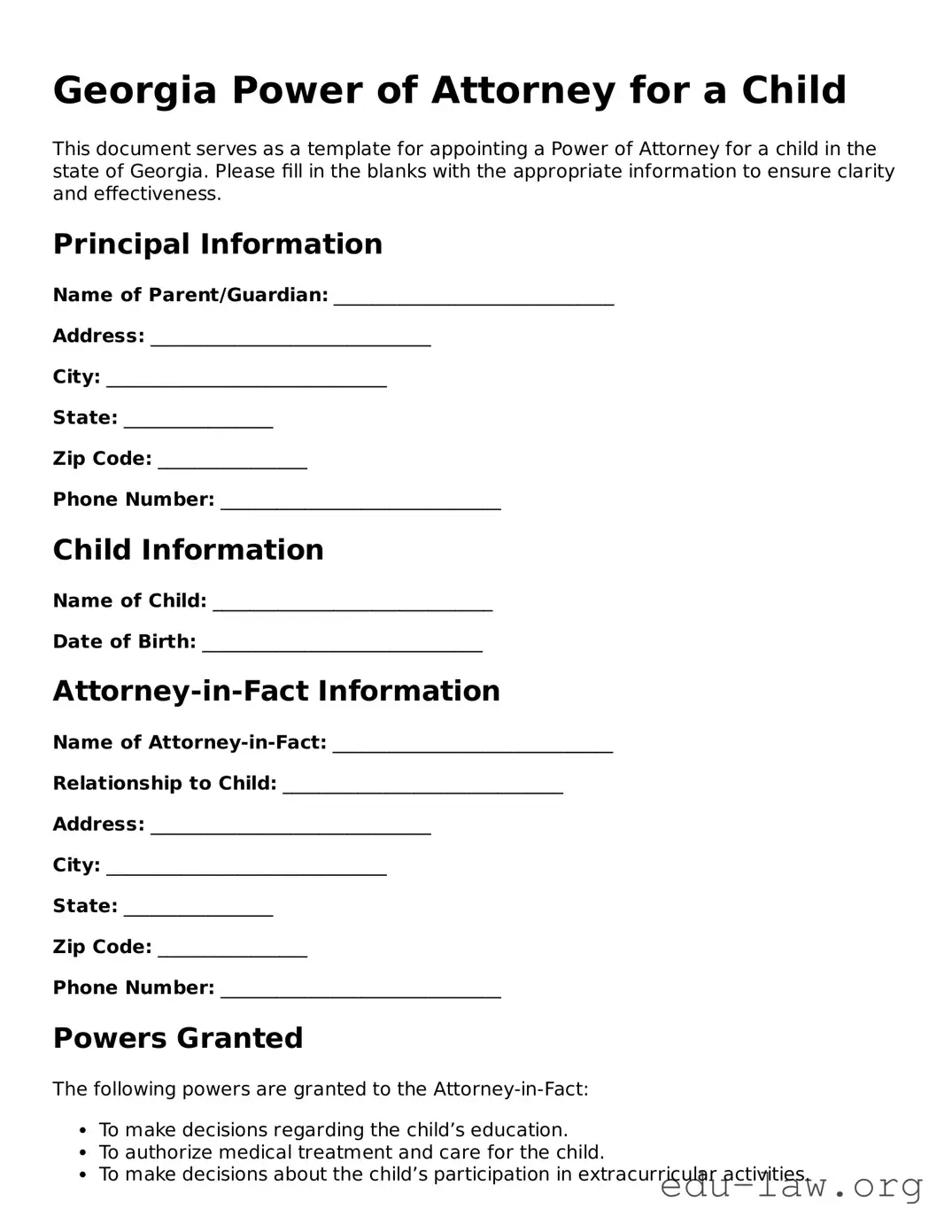Georgia Power of Attorney for a Child
This document serves as a template for appointing a Power of Attorney for a child in the state of Georgia. Please fill in the blanks with the appropriate information to ensure clarity and effectiveness.
Principal Information
Name of Parent/Guardian: ______________________________
Address: ______________________________
City: ______________________________
State: ________________
Zip Code: ________________
Phone Number: ______________________________
Child Information
Name of Child: ______________________________
Date of Birth: ______________________________
Attorney-in-Fact Information
Name of Attorney-in-Fact: ______________________________
Relationship to Child: ______________________________
Address: ______________________________
City: ______________________________
State: ________________
Zip Code: ________________
Phone Number: ______________________________
Powers Granted
The following powers are granted to the Attorney-in-Fact:
- To make decisions regarding the child’s education.
- To authorize medical treatment and care for the child.
- To make decisions about the child’s participation in extracurricular activities.
- To obtain necessary records on behalf of the child.
Duration of Power of Attorney
This Power of Attorney will become effective on _________________ and will remain in effect until _________________ unless revoked by the parent/guardian.
Signatures
By signing below, the Parent/Guardian grants the above powers to the Attorney-in-Fact.
Signature of Parent/Guardian: ______________________________
Date: ______________________________
Witnesses:
1. ______________________________________
2. ______________________________________
Notary Acknowledgment
State of Georgia
County of ______________________
On this ___ day of ______, 20__, before me, a notary public, personally appeared ______________________, who is known to me or satisfactorily proven to be the person whose name is subscribed above.
Notary Public: _________________________
My Commission Expires: ________________
